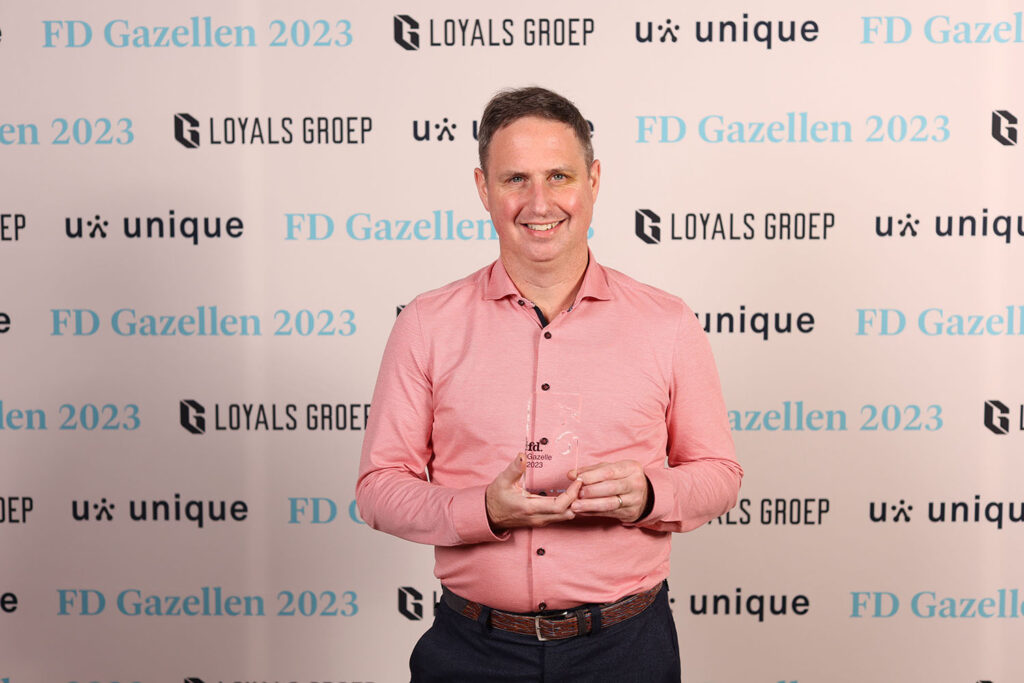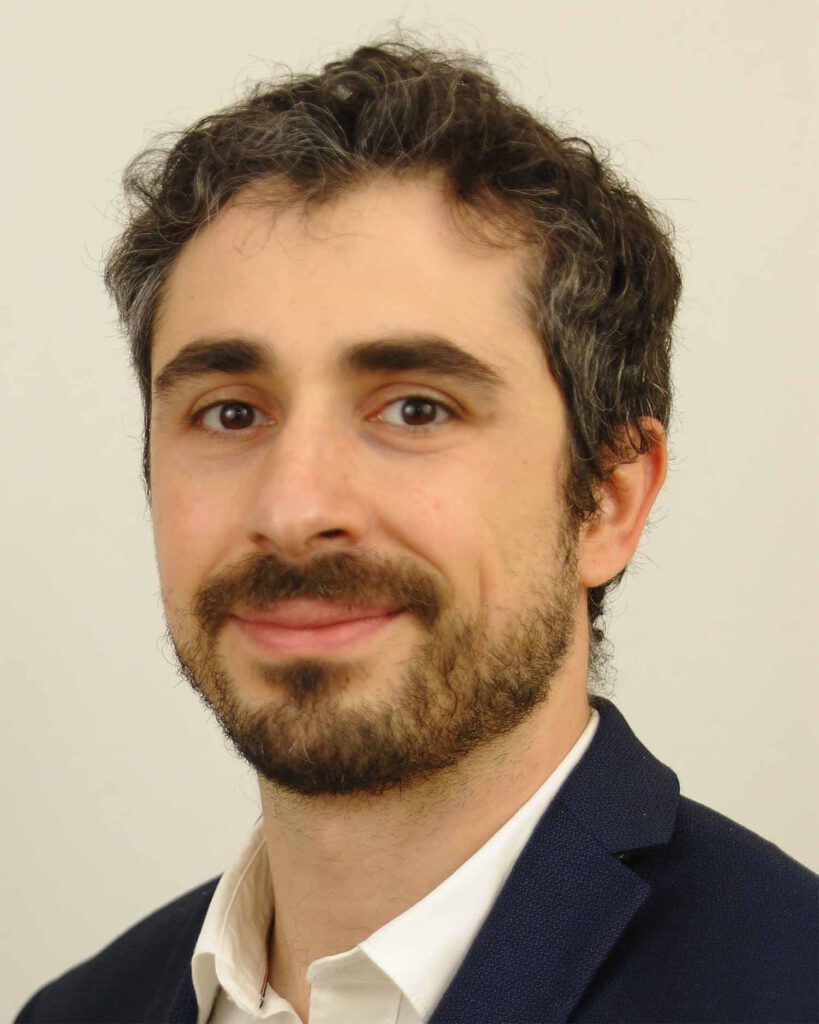We are celebrating yet another Holiday Season with festivities in many cultures all around the world. It is, therefore, a special time of the year for many of us. For many people and very often for organizations, it is also the time to reflect on the past year and our experiences.
It has been yet another year with many challenges around the globe. But there were also positive events in the world, and for us, and for that, we are grateful. We also extend our gratitude and heartfelt thanks to our clients, collaborators, business partners, each team member and everyone who has been a part of our journey and made our year very special. We wish everyone Happy Holidays and a great New Year!

Highlights of 2023
PD-value is among ‘FD Gazellen’!
We had the honour to be selected among the ‘FD Gazellen’ this year by Het Financieele Dagblad, a Dutch financial newspaper.
Every year, companies from all sectors in all corners of the Netherlands are evaluated for ‘FD Gazellen’. We were honored to be selected among the fastest-growing companies in the Netherlands this year, ranking 12th among the SMEs in the East region and 84th among the 1003 Gazellen. We are thrilled to receive this prestigious award, even when operating in a niche field.
We want to thank all of our clients, collaborators and employees. It wouldn’t be possible without them. We will continue our work with even more dedication and motivation to support our clients with our quality work and provide our team members with a work environment where they can flourish. We will also keep contributing to our scientific community and our society.
We are grateful for the recognition of our hard work, and we are happy that our significant growth this year allows us to do what we love while sticking to our values. We look forward to many more exciting projects and having more colleagues in the coming years!

We completed the MESI-STRAT Project
The Mesi-Strat consortium, of which PD-value is a partner, has successfully completed this EC-funded project on breast cancer.
The Mesi-Strat consortium came together with an ambitious objective to understand the underlying mechanisms of relapse and treatment resistance in a particular population with ER+ Breast Cancer in 2018. Despite the pandemic and challenges, partners executed high-impact work that opens possibilities for new treatments. The diverse consortium members consisting of academicians, clinicians and industry representatives working in close collaboration played a key role in creating impact. Further implementation of the results is expected to be seen after the completion of the project.
We, as the PD-value team, find the academic-industry collaboration work with anticipated impact on patient lives utterly crucial. We want to thank the European Commision for the funding and our partners for the relentless hard work in bringing science and clinical practices forward in Europe and beyond. Please visit the Mesi-Strat website for more information about the project, our website and our LinkedIn profile for more information about us. For more information about our other academic collaborations, please visit the QSPainRelief website and QSPainRelief LinkedIn profile.
PD-value donates to open-source initiatives
We believe in the importance of open source at PD-value. Therefore, we donated to three open-source organizations: Wikimedia, the Free Software Foundation, and Thunderbird.
Open Source initiatives have been crucial in developing agile, flexible and cost-effective technologies. The concept has been the symbol of transparency and, in many cases, improved security. While open-source initiatives created their own very dedicated communities, the organization of finances has not always been straightforward for many of them. Therefore, we decided that donating to these organizations is an excellent way of giving back to the open-source community, in addition to the contributions of our team members in the relevant forums and discussion platforms.
Meet the team – Stefano Sansotta

Hi Stefano, can you tell us a little about yourself and your background? We want to know who Stefano Sansotta is.
Well, I am an Italian from Rome. I consider that my career started at University. I chose chemical engineering mainly because I had yet to discover what I wanted to do. I found chemical engineering had a lot of interesting topics. Over the years, my interest in fundamental science grew past my passion for engineering. I found engineering a bit dull compared to science.
I decided that I wanted to write my master’s thesis at a university abroad. I went to my professor, who was in charge, and he remembered me from my studies. He said, ‘Why don’t you go to Germany? I have an internship with BASF.’ I said, “I don’t know much about BASF. Let me think about that”. I discovered it was an excellent opportunity when I did a short research. I really enjoyed my time there. I had the chance to do both experimental and computational research for six months. My work was so successful that I was awarded “Best Master Thesis” by AIDIC, the Italian Association for Chemical Engineers, in 2013.
Oh, Congratulations!
So my work was good, and I was enjoying it. But, I had the feeling that it was not fundamental enough; it was still mostly engineering. I wanted to understand how things work (in essence). In engineering, for instance, having a reasonable fit of your data is sufficient. You don’t always need to know why is that. So, I decided to go for a PhD to do more research. Because I have a degree in chemical engineering, I never had proper lab training. Obviously, no one was going to put me in a chemistry lab. That would be very dangerous.
That would be very dangerous (both laughing).
Exactly! So, I decided to look for a program in either a combination of engineering and physics or completely in physics. Luckily, I found something in theoretical chemistry, which was an even better fit for me. My supervisor in Germany was using atomistic simulations to study
crystallization, which was my main interest at the time. So, I moved to Germany and lived there for five years. I learned the language. I finished my PhD. I’ve learned a lot during my PhD, so I decided to continue my academic career. Then, I received a call from a professor I know in Spain. He was looking for someone who could do the kind of simulations I did during my PhD. I got the opportunity to work there. I was very happy living in Spain; the situation was optimal. The only downside was I needed another 10+ years to get a permanent position. However, I did not want to continue with a student-like lifestyle anymore.
So, I started to look around again, asking what I could do with my skill set in the future. I was doing a lot of programming, which I enjoyed, and I was interested in modeling. So, I started looking for jobs in that direction.
I had some countries in mind for work. One was the Netherlands because, in 2019, I won a European Grant to do some research at the University of Eindhoven. I knew a Professor at the Department of Physics who works on the development of thermo-batteries based on inorganic crystals. I worked with the group for three months; then, I stepped down a bit during the pandemic. When things settled down, I moved to Spain. So when I started to look again, this time for a job, the Netherlands was a possibility, and I found PD-value.
Well, you led us to my next question nicely. What made you get into the world of pharmacology? Was it a natural transition after academia?
I found the job description and the type of company very interesting. I am interested in modeling, and you were looking for a programmer. I thought I fit the position. Among all the industries I could go to, the pharmaceutical industry seems to be a good option. I mean, I don’t do much, but it is nice to help people, even a tiny bit.
Of course, you do a lot!
This is certainly important for me in a job. I also considered theoretical chemistry positions, mainly in pharmaceuticals. However, opportunities are limited, especially in the Netherlands. This was definitely the best option.
How nice. Can you explain your line of work at PD-value to us? How is your typical day?
As a programmer, my main activities are writing and debugging the code. So, I divide my time between these two activities every day. I also invest time in learning statistics, which I didn’t learn at University. Statistics is crucial. So, I try to catch up, but I still have much to learn. Sometimes, I also try to understand more about the pharmacokinetics and pharmacodynamics modeling performed at PD-value. But, mainly, it is either writing code or debugging them, oh and testing obviously, testing the code as well.
That’s interesting. I like the following question: what is your biggest contribution to the projects you are involved in, and can you make a connection with the outside world?
Well, I create tools that pharmacometricians can use to perform PK-PD analyses. Whenever a pharmacometrician uses my tools, which support the development of a drug, I think I make a contribution, even if it is very tiny.
It is not. It all adds up, and it is very lovely to hear.
It adds up; it is not much, but still something.
Indeed. What makes you keep going, especially in this very gloomy weather? What are you most passionate about in your work?
Well, two things generally drive me. One is I am very curious. Sometimes, I want to do things just to test them. Even at home, I try random stuff when I have time. I am interested in different topics, and I like testing things. The other thing is I am also a bit sturdy sometimes. I get really upset if something I do doesn’t work. So, the next day, I want to go there and fix it. Until it works as I wish, I am not happy.
You want things to work; that’s fair. What do you think are some of the biggest challenges you’ve faced in your work or field?
Certainly, the biggest challenge has been catching up with all the knowledge and foundations required for the programming. I needed to learn PK-PD and statistics as fast as possible from scratch. I also needed to learn new things from the coding perspective. However, with sound foundations in coding, I learn these relatively quickly. It can be tricky sometimes. But it’s not as challenging as learning two entire fields from scratch.
Indeed. I know you are into technology; can we call you a futurist? Do you like to think about the future of technology?
Well, I like to think about future applications of current technologies. Again, I am geeky; I like technological things, indeed, and I am curious. Whenever there is something new, I try to understand what it is and if it is within my interests. For example, I just learned machine learning by myself because I was curious. I was literally at home, at some point, coding models of machine learning just to see how it works and what it could do. I did a course on Coursera to understand the theory behind it. I like to understand how new things work. Then, I like to think about new applications for the future.
Are there any trends you expect to happen that will have a global impact? Is there any field you’d recommend us to follow?
I find the field of automatization and robotization and their effect on humanity fascinating. Now, using robots in the healthcare industry is becoming more common. With the use of a high-speed connection, you can have an expert operating from the United States a patient in Germany with a remote connection connected to a robot. These things certainly are developed. I don’t know if they are actively used this way, but generally, you can use these in hospitals. There are very advanced machines.
Again, people are trying to use machine learning in every possible application. As you’ve already seen, there are also applications for pharmacometrics studies. They will only get bigger. They are a little bit raw at the moment; not everything works consistently. There are also some details missing. But generally speaking, machine learning applications will become the norm. There will be a lot of social and work-related consequences of this.
Can you tell us about yourself outside of work? What do you enjoy doing most? Is there anything you are passionate about outside of work?
I enjoy my time with my girlfriend. I moved to the Netherlands, where I already had friends. I met more people. So I enjoy my time with these friends. I like to be outside when it’s not too cold. If I am home alone, I either do some exercises or do something, including socializing, in front of a computer. I like reading in bed. It is a night activity, not a day activity for me.
Do you like traveling?
I like traveling. I am an expat from Rome. I lived in two different cities in Germany and in the Netherlands. I lived in Spain. I can assure you I like traveling.
Is there a favorite city or country already?
I would say Italy and Spain, probably. They are the best places, very diverse. There are a lot of different weather types and a lot of different landscapes. The food is great. People are fantastic. It is very easy to make friends as the Spanish are super friendly. Both nations are beautiful. They have so much to offer.
Thank you, Stefano, for sharing your journey and experiences with us.
